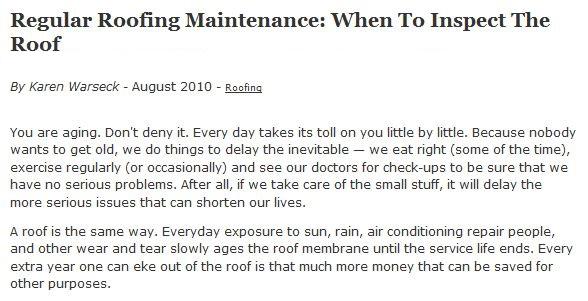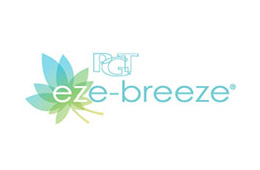The roof bears the brunt of constant exposure to the sun and rain as well as adverse weather conditions, so more than any other part of the house, your roof is prone to wear and tear. To maintain the quality of your roof, roofing experts recommend regular inspections and repairs performed by a reliable Delaware roofing contractor like Homecraft® Inc. at least once every year. Through this proactive maintenance plan, not only will replacements, tear-offs, and extreme roof makeovers be prevented, your roof will also last longer.

An article by Karen Warseck discusses the three types of formal moisture survey that can be done to determine your roof’s condition in addition to the normal visual survey conducted by roof inspectors:
- “An infrared scan measures the amount of heat retained or lost through the insulation. Wet insulation transmits heat better than dry materials. Thus, the infrared camera will pick up the higher levels of heat radiated by wet materials.
- Nuclear isotopic meters work by sending hydrogen ions into the roof system and counting the number that bounce back. Because water has two hydrogen ions in every molecule, the number of ions counted increases significantly when water is present in the roof.”
- Electrical capacitance and resistance meters measure the ability of roof materials to conduct electricity. They work on the principle that wet materials conduct electricity better than dry ones do.
A formal moisture survey does not actually measure water. Instead, all of the three methods mentioned measure properties of the roof materials that change when there is water present. These types of surveys are best done before and after the expected severe season to prepare the roof for extreme weather and to repair any damage that resulted from it, respectively.
Each formal moisture survey method, however, has limitations and not all are applicable to every roofing type. You may need the help of a competent Wilmington, DE roofing expert, such as Homecraft® Inc. to determine which test is appropriate for your roof maintenance plan. To maximize the lifespan of your roof, you may ask your trusted roofer to conduct this test every five years.
(Article Excerpt and Image from Regular Roofing Maintenance: When to Inspect the Roof, FacilitiesNet, August 2010)










